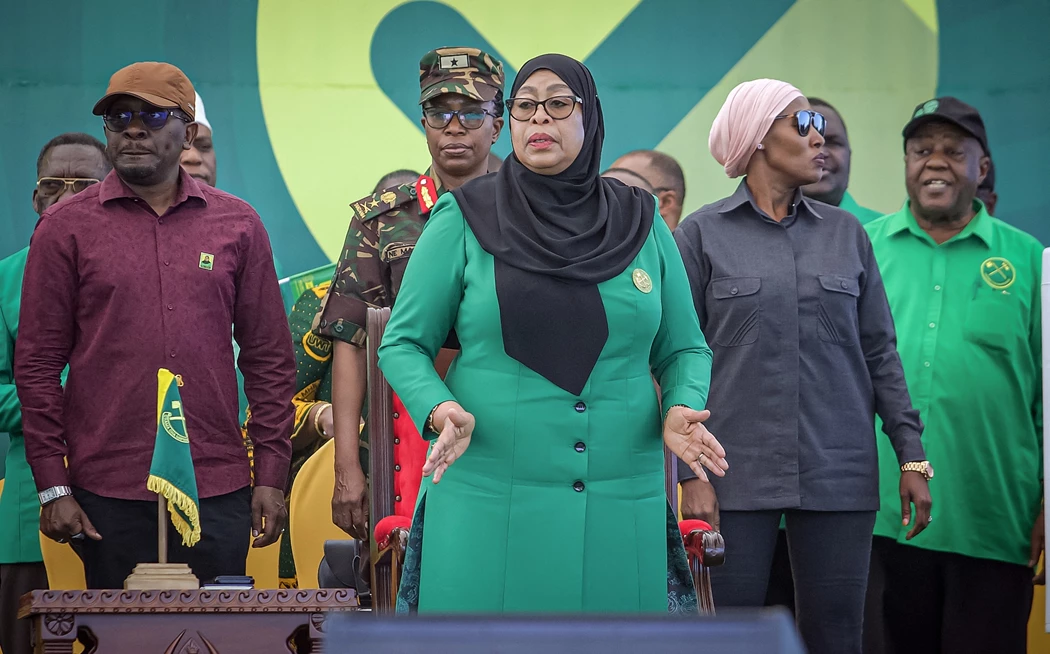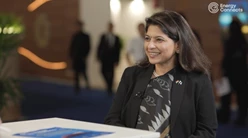Tanzania Sets Curfew, Curbs Internet as Unrest Disrupts Vote
(Bloomberg) -- A nationwide internet outage and protests in Tanzania’s commercial hub marred the country’s presidential election that’s barred key opposition leaders.
Internet-monitoring group NetBlocks said live network data showed restricted access to online services across the country, “corroborating reports of a digital blackout,” according to a statement.
Police declared a curfew in Dar es Salaam starting 6 p.m. local time.
“No one is allowed on the road or on neighborhood streets,” Inspector General of Police Camillus Wambura said, without indicating when it would be lifted. “Only police officers and other members of defense and security forces are allowed on the streets on special assignment.”
President Samia Suluhu Hassan, 65, is running for a second term in Wednesday’s vote. The exclusion of the leaders of the country’s two biggest opposition parties — part of a broader crackdown on civil rights in the East African nation — mean she’s a shoo-in to win the race.
Campaign billboards for Hassan line the streets of Dar es Salaam and other major towns, with none visible for opposition candidates, illustrating the skewed nature of the election and the likelihood that the ruling Chama cha Mapinduzi party will extend its almost five-decade rule.
The exclusion of opposition candidates in Tanzania reflects a pattern elsewhere in Africa, where leaders are tightening control over contested votes. Ivorian President Alassane Ouattara secured a controversial fourth term after a vote that excluded his biggest challengers, while Benin’s electoral commission last week rejected the candidate of the main opposition party before elections in April.
Iron Lady
If reelected, Tanzania’s first female leader is expected to preside over the rolling out of a long-delayed $42 billion liquefied natural gas facility with Shell Plc, Equinor ASA and Exxon Mobil Corp. The nation — rich in deposits of gold, uranium and rare earth minerals — is also investing heavily in power-generation plants, ports and railways to attract more foreign investment.
Critics of Hassan, who took over when strongman John Magufuli died in office in March 2021, accuse her of being ruthless with opponents after initial promises of reform and political reconciliation.
The deputy leader of the opposition Chadema party, John Heche, was arrested just days before the election as police rounded up government critics.
“This election lacks legitimacy as a democratic process because the main opposition candidates are excluded from the vote,” said Chadema spokeswoman Brenda Rupia.
Hassan’s main challenger — firebrand Tundu Lissu — has been incarcerated since April, when he was charged with treason after calling for democratic reform. His Chadema party is barred from the vote, its bank accounts have been frozen and a court suspended its political activities.
The presidential hopeful for ACT-Wazalendo, the second-biggest opposition party, has also been disqualified from the ballot.
Human rights organization Amnesty International warned earlier this month that Tanzanian authorities had intensified repression to silence dissent before the elections.
Between January 2024 and October 2025, Amnesty “documented widespread and systematic violations, including enforced disappearances, arbitrary arrests, torture, unlawful killings, and severe restrictions on freedoms of movement, expression, and peaceful assembly,” according to its report.
One of the most recent people to vanish was Humphrey Polepole, a former senior ruling party official and diplomat, abducted earlier this month after a scathing attack on Hassan’s leadership and dismissing the election as a sham.
The government has denied any involvement in his disappearance and said an investigation was underway.
Tanzania said it was “deeply concerned” by Amnesty’s report and that it was committed to the protection of human rights, freedom of expression, peaceful assembly and access to information.
“Any reported incident is subject to thorough investigation and legal redress,” the information ministry said in a statement last week. “The judiciary remains independent and all persons are entitled to fair trial guarantees under both domestic and international law.”
(Updates with curfew from third paragraph)
©2025 Bloomberg L.P.





